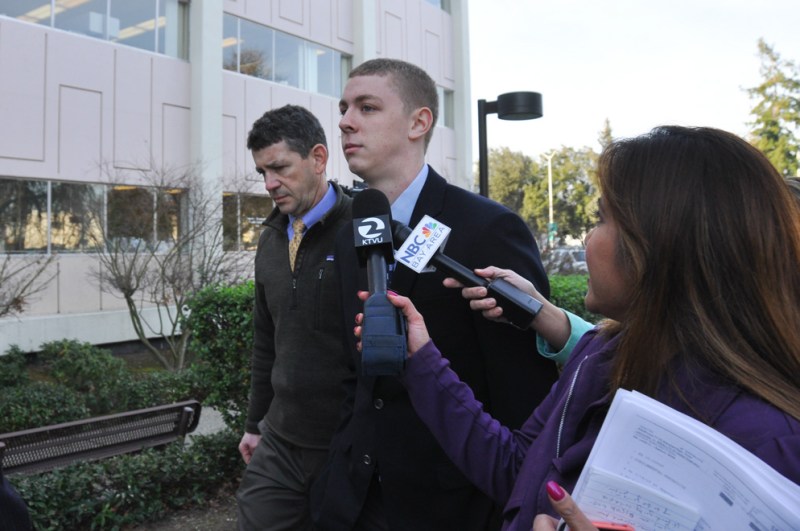The Sixth District appellate court denied an appeal to reverse Brock Turner’s three felony convictions in a decision filed Wednesday afternoon.
Turner’s attorney, Eric Multhaup, had challenged the sexual assault convictions in court on July 24, arguing Turner sought “outercourse,” not rape, when he was found on top of an unconscious woman, known publicly as Emily Doe, at a Jan. 2015 Kappa Alpha party.
Multhaup argued that, because Turner’s clothes were on when two graduate students found him on top of Doe, evidence suggesting his intent to rape was insufficient. Multhaup also claimed that it was possible Doe gave consent, citing a lack of “evidence at what point she went from being incapacitated from alcohol to loss of consciousness.”
The graduate students who stopped Turner had already said Doe was unresponsive when they noticed the situation from some distance away.
Judge Franklin Elia decisively dismissed Multhaup’s arguments. Writing on behalf of a unanimous three-judge panel, Elia stated there was “substantial evidence” for each of the original convictions to be upheld.
“Defendant argues none of his convictions is supported by sufficient evidence,” Elia wrote. “That argument lacks merit.”
Elia noted that Turner, who ran away after being caught in the act, did not attempt to defend or explain himself at the time. Turner also lied to a detective about running away. Elia added that, given the evidence of the case, the jury “could reasonably have inferred” that Turner intended to rape Doe.
“The fact that defendant was engaging in a different sexual act at the time the encounter was interrupted… does not foreclose the inference that he intended, ultimately, to rape [Doe],” Elia wrote.
Elia later wrote that, in the appeal, Turner’s representatives overlooked “considerable circumstantial evidence” suggesting that Doe was too drunk to give consent.
After losing his appeal to the Sixth District appellate court, 22-year-old Turner still has the option to appeal the case to the California Supreme Court. However, unlike the appellate court, the Supreme Court is not obligated to hear Turner’s case. The court approves less than 5 percent of “petitions for review” submitted to it.
Turner is ineligible to receive further court punishment during the appeal process, due to the Fifth Amendment’s guarantee against “double jeopardy,” or a second punishment for the same crime.
Many saw Turner’s six-month jail sentence, which was later reduced to three months for good behavior, as an overly lenient ruling by then-judge Aaron Persky ’84, M.A. ’85. Persky was recalled this June, following Stanford Law professor Michele Dauber’s two-year campaign to unseat him.
Unless his convictions are successfully appealed in the California Supreme Court, Turner will be forced to register as a sex offender for the remainder of his life. He is already banned from Stanford’s campus for life, and he currently lives at home with his parents in Ohio.
Contact Holden Foreman at hs4man21 ‘at’ stanford.edu
